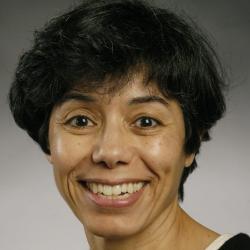Resources for Current Students
Need math help??? Visit the Math Learning Center in CNS E204 anytime 4-10pm Sunday through Thursday. Walk-ins are welcomed!
How to start doing research in mathematics at IWU:
- The first step is to talk to the individual professors in the Mathematics Department. Ask them what kind of research they do, and if they have any problems for students to work on. Every research project is different.
- Talk to students who are currently conducting mathematical research. View the current list.
- There are also many opportunities to do research off-campus, especially during the summer.
Math Department Student Learning Goals
|
1 . Transition to higher mathematics: From a procedural and computational approach to mathematics to a more conceptual understanding of mathematics. |
Develop an understanding of the fundamentals of mathematical reasoning and logical, namely,
|
| 2. Mathematical reasoning and logical argument |
Develop their ability to
|
| 3. Mathematical independence and maturity, open-ended inquiry |
Be able to
|
| 4. Role of mathematics in real-world applications |
Be able to
|
| 5. Role of technology in mathematical work | Achieve proficiency in relevant technological tools, e.g., Mathematica, R, Python, LaTeX, WordPress, and Excel. |
| 6. Communication |
|
Formal Reasoning Overview
IWU has a general education requirement of one course with the Formal Reasoning designation.
The four category goals of Formal Reasoning are 1) acquaint students with one or more formal reasoning systems, 2) promote understanding of formal reasoning systems and their use in identifying, analyzing, and solving problems, 3) provide a real world context for the use of formal reasoning, and 4) convey an appreciation of formal systems.
In mathematics, one formal reasoning system we use is language itself. Language as we use it in day-to-day communication is intentionally messy, where the same word or phrase can convey radically different meanings depending on context. The goal of mathematics is to craft statements that are unambiguous – statements that are either true or false. We then use the tools of logic to determine which is the case. Note that while notation can be helpful in crafting precision statements, it is not necessary. Rather what is necessary is for students to be attentive to what terms mean. Thus a focus on definitions is essential.
Classes will devote a significant amount of time and material to the development of concepts, conjectures, and theorems that lead to the development of a body of mathematical knowledge. To some nontrivial degree the students themselves must be involved in the development or derivation of these tools. Merely following a given algorithm or working short problems requiring only basic skills will not qualify as Formal Reasoning.
Graduate School Overview
Slides from a presentation by Tung Nguyen, IWU class of 2015. This is an overview of graduate school in mathematics (or any quantitative field). Topics that are included: how to determine if grad school is the right choice for you, how to apply, and how to navigate the first year.
LaTeX Manual
This is an introduction to using the mathematical typesetting language LaTeX. Steven Lachowski '15, Jacob Henry '16, and Matt Kellett '16 contributed significantly to this manual.LaTeX Templates
Dr. Drici: Mathematical Modeling templates
Dr. Roberts: Techniques of Proof template, Linear Algebra template
Actuarial Science Overview & Introduction to Actuarial
These resources are for anyone interested in the actuarial science profession. Both were written and generously made available by Derek England, IWU class of 2015. The documents are particularly useful for IWU students, and include information on specific courses that address basic knowledge that is required to become an actuary. This includes information on which courses to take to prepare for actuarial exams.
TA and Lab TA Manual
A guide for TAs of mathematics courses and math Lab TAs. Jacob Henry '16 was the main author of this document.
Mathematica
Mathematica is a powerful piece of software that is used worldwide by mathematicians and others who perform technical computing. IWU has a site license for Mathematica, and many of our TAs and Lab Monitors in the math department are trained in using this software.
Mathematica is available in computer labs E202, E204, and E210, as well as in the library. IWU students and faculty can install Mathematica free of charge on their personal computers. Instructions for obtaining Mathematica are maintained by the Ames Library .
A general resource for academics, career planning, GRE prep, etc.
Resources for Student Research
MathSciNet
This is a database containing reviews and references to millions of research articles in mathematics. It is one of the most useful tools that a mathematical researcher has. The Ames Library maintains a subscription. If you are having trouble accessing the database, then try entering through the library's website here.
Stephanie Davis-Kahl, Sciences Librarian
Stephanie maintains this webpage full of resources for sifting through the extensive research literature of mathematics.
Sources of funding
Beling summer research students. The mathematics department supports 2-3 students each summer through funds made available by the Earl and Marian Beling Professorship of Natural Science held by Professor He. If you are currently conducting research with a faculty member and are interested in working through the summer, then let your research advisor know.
Eckley Summer Scholars and Artists. This is a competitive university-wide program that provides summer support for research students. Applications are submitted jointly with faculty members.
REUs. These are Research Experiences for Undergraduates. There are approximately 50 running throughout the United States every summer. Applications are typically due late in the fall semester or early in the spring semester before the summer you wish to participate. Housing is provided, as well as stipends ranging from $2500-$6000. The American Mathematical Society maintains a list of current REUs.
